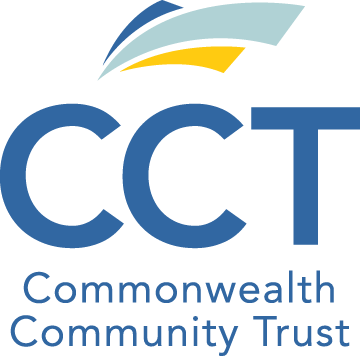65 and Older
Beneficiaries 65 and Older
Third-Party Special Needs Trusts
A third-party special needs trust, whether pooled or standalone, can be established for any beneficiary with a disability at any time, regardless of their age or what type of benefits they receive.
First-Party Special Needs Trusts
Pooled Trusts are the Only Option
Once a Beneficiary with a disability reaches the age of 65 years or older, federal law prohibits establishing a standalone first-party special needs trust, also called a D4A or self-settled trust, for that Beneficiary. [1] After the Beneficiary turns 65 years old, if the Beneficiary needs to establish a first-party special needs trust, then they must establish it with a pooled special needs trust, like CCT. [2]
Next steps: If your client is 65 years of age or older and they are setting up 1st Party Pooled Special Needs Trust with CCT, please complete the Attorney Checklist and submit it to CCT by email or mail. If you are a professional other than an attorney, then the client needs to complete the Liability Waiver form instead.
Transfer Penalty: Supplemental Security Income (SSI)
If the beneficiary with a disability (1) is 65 years of age or older, (2) transfers funds into a first-party pooled special needs trust, and (3) is receiving Supplement Security Income (SSI) payments at the time of transfer or applies for SSI within the next three years (called the SSI look-back period), then there will be a penalty period imposed during which SSI payments will not be made. The period of ineligibility is based on the amount that was transferred, but is no more than 36 months. For beneficiaries under the age of 65, there is an exception allowing them to fund a pooled special needs trust without it affecting their SSI, this exception is explicitly limited to beneficiaries under the age of 65. It is important to carefully consider whether a beneficiary is receiving or is likely to apply for SSI when funding a first-party pooled special needs trust once they turn age 65.
Transfer Penalty: Medicaid Long-term Services and Supports
Medicaid long-term services and supports (LTSS), which covers long-term care and home and community based services (often called waiver services), which is administered by state Medicaid agencies, which have differing policies. When a person applies for Medicaid LTSS, Medicaid asks whether the applicant has transferred or given away anything they owned within the “look-back period,” which is generally five years. If the applicant transferred anything they owned (also called an asset) and Medicaid determines that the transfer was for “less than fair market value,” then Medicaid will calculate a period of months during which Medicaid will not pay for LTSS for the applicant using a formula based on the value of the transfer and the average cost of long-term care in that area. Unlike the SSI penalty period, which is capped at 36 months, there is no Medicaid maximum transfer penalty.
For example, if John, who is 70 years old and lives in Alexandria, VA, gave $90,320.00 to his daughter two years before applying for Medicaid LTSS, then Virginia would divide the gift amount by $9,032.00 (which Medicaid has set at the average nursing facility cost in northern Virginia), resulting in a penalty period of 10 months, during which Medicaid will not pay for LTSS services and John must find another way to pay for his nursing home costs.
If the beneficiary is under the age of 65, there is no penalty period imposed for transferring funds into a first-party special needs trust, whether pooled or standalone. However, in May 2008, CMS sent a memo to all states’ Medicaid agencies that changed the rules once a beneficiary turns 65 years old. The memo said that a penalty period can be imposed if (1) a beneficiary with a disability aged 65 or older transfers funds into a first-party pooled special needs trust and (2) that beneficiary is receiving Medicaid LTSS at that time or applies within the look-back period, which is generally five years. Since that time, each state’s Medicaid agency has determined whether funding a first-party pooled special needs trust at age 65 or older should be considered an uncompensated transfer and subject to a transfer of assets penalty.
In some states, like Maryland (as of May 2025), they have decided not to impose a transfer penalty for funding a first-party pooled special needs trust at age 65 or older. In those states, special needs planning for beneficiaries over the age of 65 is straightforward and the first-party pooled special needs trust is an invaluable tool in helping beneficiaries with a disability qualify or maintain eligibility for Medicaid LTSS (as well as other means-tested government benefits).
In other states, like Virginia (as of May 2025), they decided to impose a transfer penalty. In these states, if the professional working with the beneficiary is not an experienced elder law or special needs attorney, it is important to consult with one regarding the best way to protect the beneficiary’s eligibility for Medicaid LTSS.
The first step is to determine whether the beneficiary is currently receiving Medicaid LTSS benefits. If so, then the attorney can help calculate the penalty period that might be assessed by transferring funds into the first-party pooled special needs trust and whether it a transfer is in the beneficiary’s best interest.
If the beneficiary is not receiving Medicaid LTSS at the time of transfer, then the second step is for the beneficiary (or their legal representative) and the attorney to discuss the risks and benefits of funding a first-party pooled special needs trust and decide whether a transfer is in the beneficiary’s best interest.
To determine if your state has transfer penalties and, if so, whether it is in the Beneficiary’s interest to transfer assets into a first-party pooled special needs trust, please consult with an attorney who specializes in elder law or special needs planning. The following organizations will provide referrals to attorneys in your area:
National Academy of Elder Law Attorneys
[1] 42 U.S.C. § 1396p(d)(4)(A).
[2] 42 U.S.C. § 1396p(d)(4)(C).
Key Terms
First-party funds are assets belonging to or owed to the Beneficiary, like personal injury awards, inheritances to the Beneficiary directly, child support, etc.
Third-party funds are assets that belong to anyone other than the Beneficiary, like gifts or bequests made from family or friends directly to the third-party trust.


